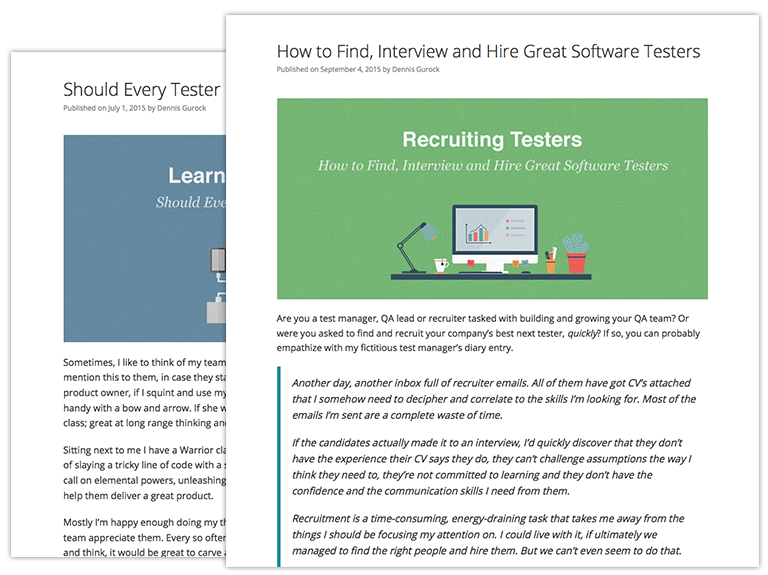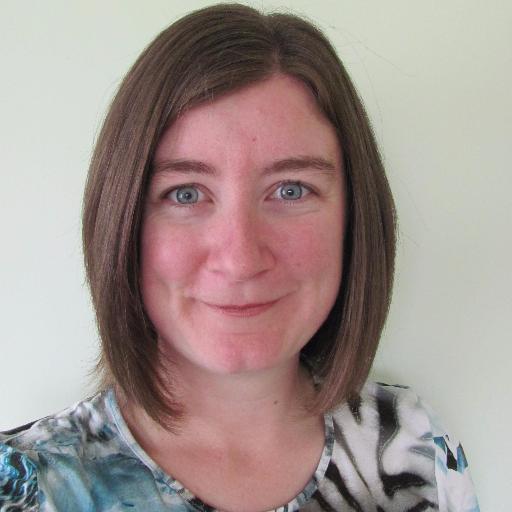Congratulations on the release of your new book! Given your already prolific blogging output, conference appearances, Testing Trapeze editor role and – I assume – fairly demanding work commitments, it’s difficult not to wonder… How and where do you find the time for everything?
I get asked this question a lot. My flippant response is usually that I don’t watch TV and I don’t have kids. These are two things that take up a lot of time for most people. I find it’s an easy way to deflect the conversation towards another topic.
However, if you’re really asking…
I try to keep my inbox as close to zero as possible. If I don’t need to action an email, I archive it. If I can reply to it immediately, I do. If it is about something that I need to do long-term, I convert the email to a Trello card.
My personal Trello board captures all the things that I have in flight along with the deadlines for each. I think I’m relatively good at prioritising and delegating. Often the work that I do in the testing community, like Testing Trapeze and WeTest, is about providing a platform for others to contribute rather than doing things myself, so I’m just keeping track.
I check in on Facebook, Twitter, and LinkedIn regularly, but they’re not always open in my browser. I rarely use Skype, Slack, or other instant messaging tools. I guess this minimises interruption. I like to focus on one thing at a time.
I touch type. If you don’t touch type, I would really encourage you to learn. I think that saves a lot of time.
I like to garden and read brainless fiction. I get a lot of sleep. I’m conscious that when I’m tired or worn out, I can’t get through all the things that I would like to. I’ve learned that staying up late or working non-stop is counter-productive for me, so I try not to.
I’m also fortunate to have a supportive husband.
Get TestRail FREE for 30 days!
One thing that really shines through in your work is a passion for community and learning. If you were to carry out a kind of health check on the testing community, what heuristics would you use and how do you think it would score? Where and how would you make improvements?
I think that I benefit from geographical isolation when people ask about “the testing community”. There are a lot of communities around the world and, as an observer from afar, they each have a different vibe. I’m not sure whether healthy in one location would translate to healthy in another.
When considering the health of the WeTest community in New Zealand, here are five health check questions that spring to mind:
- Can we find local people who are willing to speak at our MeetUp events and conferences?
- Do the people who step forward feel supported and receive feedback about their contributions?
- Is there diversity among those who contribute and attend our events?
- Are people recommending our community to their colleagues and friends?
- Do people take the ideas from our community and apply them in the workplace?
Where and how would I make improvements?
I am comfortable that the New Zealand community is relatively healthy. I still feel that I’m largely an outsider in the international testing community, where the bulk of my interactions are via Twitter. Previously I would have cited Twitter as an area for improvement, but I’ve realised that unfollowing a handful of people can alter my Twitter experience significantly. It was freeing to realise that I could self-select the community that I wanted to be part of.
Learning – both in terms of your own development and the development of your teams and the community – is clearly very important to you. How do you manage your own learning? Do you have some pro-tips to share with folk who aspire to reach the heights of their profession?
I am slightly embarrassed to admit that I don’t really read a lot of books about testing.
I do read a lot of blogs. I like the quick-fire nature and seeing themes emerge. The Ministry of Testing blog feed and Testing Curator are how I find most of what I read, occasionally Twitter throws up something from left-field too.
The reason that I speak at conferences is so that I can attend them. I learn a lot from people who are willing to share their experiences at these events, as well as through the conversations that happen around the main program.
It feels odd to frame any of this as “managing my own learning” though. I am just constantly curious about what other people are doing. I think that if you aspire to reach the height of your profession, you aren’t going to do that in isolation.
How (and when) did you get started as a tester?
I started my career as a software developer. In retrospect, as a Computer Science graduate I had a very vague understanding of the options available within IT. Development seemed like the only choice initially.
My shift from developer to tester was via a role as a Solution Delivery Engineer. I was racking, cabling, installing, configuring, and testing servers within mobile phone networks. The team that I was part of was based in New Zealand, but serviced Central and Latin America, as well as Asia Pacific. There was a lot of travel and challenging environments to work in. I learned a lot.
When I was ready to leave that role, I reflected on what I had enjoyed the most in my career so far and decided to move towards testing. The first role I had as a tester was in 2010. It doesn’t feel that I have been in testing for that long, just seven years.
What else are you passionate about, besides testing?
I do some volunteer work.
I’m a Brownie leader. We meet each week, I find it really fun. The girls are so enthusiastic and it’s great to spend time outdoors. I’ve also found that the skills required to lead a group of children are surprisingly applicable to an office environment!
I’m a member of Altrusa, a service organisation. I enjoy being part of the hands-on service projects that we do in the community as well as the leadership opportunities that Altrusa offers. Currently I’m the secretary in my club, the national leadership chair, and the vice-chair of the international communications committee.
Join 34,000 subscribers and receive carefully researched and popular article on software testing and QA. Top resources on becoming a better tester, learning new tools and building a team.

Do you have a big vision? What is it?
Personally? No.
I tend to follow opportunities, those that I create and those that are offered. I have been working to improve my goal setting skills, but usually I aim short of what I can actually achieve. Being open to new things has served me well.
In your book, you talk a little about AI being an emerging trend in software testing. Do you have any direct experiences in this regard? What other technologies do you see emerging [in testing] and what do you think the future holds for testers?
I don’t have any direct experience with AI in testing. I see interesting developments in the applications that we test and in our approach to testing, but I’m observing that from afar.
I think Maaret tweeted the other day about the future of testing being unevenly distributed. That is something that I see too. My book is capturing a collection of experiences from the past decade, but it is still mostly the future for my organisation. Part of the reason that I am curious about what other people are doing is that I believe someone else is probably experiencing my future in testing already.
Katrina Clokie leads a team of around 100 testers as a Test Practice Manager in Wellington, New Zealand. Katrina is an active contributor to the international testing community as the founder and editor of Testing Trapeze magazine, a co-founder of the WeTest New Zealand testing community, a mentor with Speak Easy, an international conference speaker, frequent blogger and tweeter.
Her complete professional profile is available on LinkedIn
Buy her new book, A Practical Guide to Testing in DevOps, on leanpub.com.










